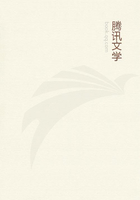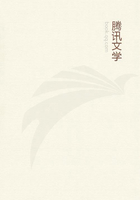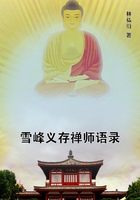The Essence, very near to the impartible, which we assert to belong to the Kind we are now dealing with, is at once an Essence and an entrant into body; upon embodiment, it experiences a partition unknown before it thus bestowed itself.
In whatsoever bodies it occupies- even the vastest of all, that in which the entire universe is included- it gives itself to the whole without abdicating its unity.
This unity of an Essence is not like that of body, which is a unit by the mode of continuous extension, the mode of distinct parts each occupying its own space.Nor is it such a unity as we have dealt with in the case of quality.
The nature, at once divisible and indivisible, which we affirm to be soul has not the unity of an extended thing: it does not consist of separate sections; its divisibility lies in its presence at every point of the recipient, but it is indivisible as dwelling entire in the total and entire in any part.
To have penetrated this idea is to know the greatness of the soul and its power, the divinity and wonder of its being, as a nature transcending the sphere of Things.
Itself devoid of mass, it is present to all mass: it exists here and yet is There, and this not in distinct phases but with unsundered identity: thus it is "parted and not parted," or, better, it has never known partition, never become a parted thing, but remains a self-gathered integral, and is "parted among bodies" merely in the sense that bodies, in virtue of their own sundered existence, cannot receive it unless in some partitive mode; the partition, in other words, is an occurrence in body not in soul.
2.It can be demonstrated that soul must, necessarily, be of just this nature and that there can be no other soul than such a being, one neither wholly partible but both at once.
If it had the nature of body it would consist of isolated members each unaware of the conditions of every other; there would be a particular soul- say a soul of the finger- answering as a distinct and independent entity to every local experience; in general terms, there would be a multiplicity of souls administering each individual; and, moreover, the universe would be governed not by one soul but by an incalculable number, each standing apart to itself.But, without a dominant unity, continuity is meaningless.
The theory that "Impressions reach the leading-principle by progressive stages" must be dismissed as mere illusion.
In the first place, it affirms without investigation a "leading"phase of the soul.
What can justify this assigning of parts to the soul, the distinguishing one part from another? What quantity, or what difference of quality, can apply to a thing defined as a self-consistent whole of unbroken unity?
Again, would perception be vested in that leading principle alone, or in the other phases as well?
If a given experience bears only on that "leading principle," it would not be felt as lodged in any particular members of the organism;if, on the other hand, it fastens on some other phase of the soul- one not constituted for sensation- that phase cannot transmit any experience to the leading principle, and there can be no sensation.
Again, suppose sensation vested in the "leading-principle" itself:
then, a first alternative, it will be felt in some one part of that [some specifically sensitive phase], the other part excluding a perception which could serve no purpose; or, in the second alternative, there will be many distinct sensitive phases, an infinite number, with difference from one to another.In that second case, one sensitive phase will declare "I had this sensation primarily";others will have to say "I felt the sensation that rose elsewhere";but either the site of the experience will be a matter of doubt to every phase except the first, or each of the parts of the soul will be deceived into allocating the occurrence within its own particular sphere.
If, on the contrary, the sensation is vested not merely in the "leading principle," but in any and every part of the soul, what special function raises the one rather than the other into that leading rank, or why is the sensation to be referred to it rather than elsewhere? And how, at this, account for the unity of the knowledge brought in by diverse senses, by eyes, by ears?
On the other hand, if the soul is a perfect unity- utterly strange to part, a self-gathered whole- if it continuously eludes all touch of multiplicity and divisibility- then, no whole taken up into it can ever be ensouled; soul will stand as circle-centre to every object [remote on the circumference], and the entire mass of a living being is soulless still.
There is, therefore, no escape: soul is, in the degree indicated, one and many, parted and impartible.We cannot question the possibility of a thing being at once a unity and multi-present, since to deny this would be to abolish the principle which sustains and administers the universe; there must be a Kind which encircles and supports all and conducts all with wisdom, a principle which is multiple since existence is multiple, and yet is one soul always since a container must be a unity: by the multiple unity of its nature, it will furnish life to the multiplicity of the series of an all; by its impartible unity, it will conduct a total to wise ends.
In the case of things not endowed with intelligence, the "leading-principle" is their mere unity- a lower reproduction of the soul's efficiency.
This is the deeper meaning of the profound passage [in the Timaeus], where we read "By blending the impartible, eternally unchanging essence with that in division among bodies, he produced a third form of essence partaking of both qualities."Soul, therefore, is, in this definite sense, one and many; the Ideal-Form resident in body is many and one; bodies themselves are exclusively many; the Supreme is exclusively one.
THIRD TRACTATE.
PROBLEMS OF THE SOUL (1).

